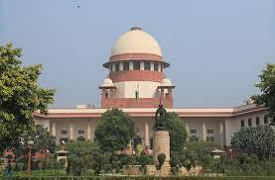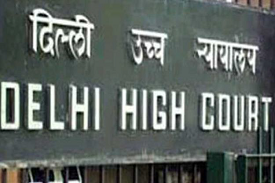
- Appointments
- Awards
- Bills & Acts
- Books & Authors
- Deaths
- Defence
- Banking and Finance
- Environment
- Business and Economy
- Important Days
- International
- Miscellaneous
- National
- Persons in News
- Regional
- Reports
- Resignations
- Sports
- Science & Technology
- April 2019 - Exams Resources
- Current Affairs - Quiz
- Current Affairs - Test
- Current Affairs - PDF
Current Affairs April 2019 - Bills & Acts
1 - RTI Act supersedes Official Secrets Law

Delivering a separate judgment in the Rafale case, Justice K.M. Joseph has made the following observations −
The Right to Information Act confers on ordinary citizens the priceless right to demand information even in matters affecting national security and relations with a foreign state.
Justice Josephs judgment countered the claim made by the government for privilege over Rafale purchase documents under the Official Secrets Act (OSA), saying it affected national security and relations with France.
Justice Joseph said the Right to Information (RTI) Act overawes the OSA.
Under Section 8(2) of the RTI Act, the government cannot refuse information if disclosure in public interest overshadows certain protected interests.
Justice Joseph in his judgment has stated that through Section 8(2) of the RTI Act, Parliament has appreciated that it may be necessary to pit one interest against another and to compare the relative harm and then decide either to disclose or to decline information. If higher public interest is established, it is the will of Parliament that the greater good should prevail though at the cost of lesser harm being still occasioned.
2 - PMLA prevails over Bankruptcy Act and Insolvency Code: Delhi HC

The Delhi High Court has ruled that Prevention of Money Laundering Act (PMLA) prevails over the Bankruptcy Act and insolvency code when it comes to attachment of properties obtained as proceeds of crime.
The Enforcement Directorate (ED) had challenged the orders of PMLA appellate tribunal on the pleas of various banks. PMLA Tribunal had held that third parties, banks in this case, which have legitimately created rights such as a charge, lien or other encumbrances, have a superior claim over such properties.
Observations made by Delhi High Court
PMLA, Recovery of Debt and Bankruptcy Act (RDBA), Securitisation and Reconstruction of Financial Assets and Enforcement of Securities Interest (SARFAESI) Act and Insolvency and Bankruptcy Code (IBC) must co-exist and be enforced in harmony.
The Delhi High Court has set aside the verdict of the PMLA tribunal and held that the objective of PMLA being distinct from the purpose of RDBA, SARFAESI Act and IBC.
RDBA, SARFAESI Act and IBC doesnt not prevail over PMLA.
The attachment order under the PMLA will not be illegal only because a secured creditor has a prior secured interest [charge] in the property, within the meaning of the expressions used in RDBA and SARFAESI Act.
Also mere issuance of an order of attachment under the PMLA does not ipso facto render illegal a prior charge or encumbrance of a secured creditor, the claim of the latter for release [or restoration] from PMLA attachment being dependent on its bonafides. Delhi High Court has stated that by the virtue of Section 71, PMLA has the overriding effect over other existing laws in the matter of dealing with money-laundering and proceeds of crime.